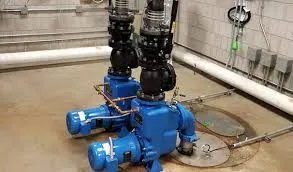English
- Afrikaans
- Albanian
- Amharic
- Arabic
- Armenian
- Azerbaijani
- Basque
- Belarusian
- Bengali
- Bosnian
- Bulgarian
- Catalan
- Cebuano
- Corsican
- Croatian
- Czech
- Danish
- Dutch
- English
- Esperanto
- Estonian
- Finnish
- French
- Frisian
- Galician
- Georgian
- German
- Greek
- Gujarati
- Haitian Creole
- hausa
- hawaiian
- Hebrew
- Hindi
- Miao
- Hungarian
- Icelandic
- igbo
- Indonesian
- irish
- Italian
- Japanese
- Javanese
- Kannada
- kazakh
- Khmer
- Rwandese
- Korean
- Kurdish
- Kyrgyz
- Lao
- Latin
- Latvian
- Lithuanian
- Luxembourgish
- Macedonian
- Malgashi
- Malay
- Malayalam
- Maltese
- Maori
- Marathi
- Mongolian
- Myanmar
- Nepali
- Norwegian
- Norwegian
- Occitan
- Pashto
- Persian
- Polish
- Portuguese
- Punjabi
- Romanian
- Russian
- Samoan
- Scottish Gaelic
- Serbian
- Sesotho
- Shona
- Sindhi
- Sinhala
- Slovak
- Slovenian
- Somali
- Spanish
- Sundanese
- Swahili
- Swedish
- Tagalog
- Tajik
- Tamil
- Tatar
- Telugu
- Thai
- Turkish
- Turkmen
- Ukrainian
- Urdu
- Uighur
- Uzbek
- Vietnamese
- Welsh
- Bantu
- Yiddish
- Yoruba
- Zulu
Telephone: +86 13120555503
Email: frank@cypump.com
Nov . 16, 2024 02:46 Back to list
basement sewage pump
Understanding the Importance of Basement Sewage Pumps
When it comes to home maintenance, certain systems often go unnoticed until they malfunction. One such critical system is the basement sewage pump. Often found in homes located in areas prone to flooding or with gravity-fed sewer systems, these pumps play an essential role in maintaining a safe and sanitary living environment.
Basement sewage pumps, commonly referred to as sump pumps, are designed to remove wastewater from your basement before it accumulates to a problematic level. This is particularly important for homes with lower-level bathrooms or where plumbing fixtures are situated below the main sewer line. Without a reliable sewage pump, these areas can become a breeding ground for bacteria, mold, and mildew, posing health risks to the household.
Types of Basement Sewage Pumps
There are generally two types of sewage pumps pedestal and submersible. Pedestal pumps have a motor positioned above the sump pit, which makes them easier to service and maintain. However, they are typically louder during operation. Submersible pumps, on the other hand, are designed to be submerged in the wastewater. They operate quietly and are more efficient in pumping large volumes of water, but they can be more challenging to access for repairs.
Regardless of the type, proper selection and installation are critical. Factors such as the volume of wastewater, the height water needs to be pumped, and the specific plumbing setup of the home should all be considered when choosing the right sewage pump.
Why You Need a Basement Sewage Pump
1. Prevent Water Damage One of the primary functions of a basement sewage pump is to prevent flooding. In areas with heavy rainfall or melting snow, a sewage pump can quickly remove excess water, preventing damage to your basement and personal belongings.
basement sewage pump

2. Avoid Health Hazards Stagnant water in your basement can create an environment ripe for mold and mildew growth, which can lead to respiratory issues and other health concerns. A properly functioning sewage pump helps to mitigate these risks by keeping your basement dry.
3. Increase Property Value Homes with reliable drainage systems, including sewage pumps, are more appealing to buyers. The presence of a sewage pump can potentially increase your property’s marketability and resale value.
Maintenance Tips
To ensure your basement sewage pump operates effectively, regular maintenance is essential. Here are a few tips
- Check the Pump Regularly Inspect the pump, float switches, and discharge lines for any obstructions or signs of wear. This should be done at least once a year. - Keep the Backyard Clean Ensure that gutters and downspouts direct water away from the foundation of your home. This will help reduce the workload on your sewage pump. - Test the System Periodically test the pump by pouring water into the sump pit to ensure the float switch activates and the pump runs smoothly.
- Consider Backups If your area is prone to power outages, consider investing in a battery backup system to keep your sewage pump operational during outages.
Conclusion
Investing in a basement sewage pump is an investment in your home’s health and safety. By understanding the different types available, knowing the critical reasons for their installation, and committing to regular maintenance, homeowners can protect themselves from the dangers and costly repairs associated with basement flooding. With a proper sewage pump in place, you can enjoy peace of mind knowing your living space remains dry and sanitary, ensuring your home is a safe haven for you and your family.
-
Horizontal Split Case Pump with GPT-4 Turbo | High Efficiency
NewsAug.01,2025
-
ISG Series Pipeline Pump - Chi Yuan Pumps | High Efficiency, Durable Design
NewsAug.01,2025
-
Advanced Flue Gas Desulfurization Pump with GPT-4 Turbo | Durable & Efficient
NewsJul.31,2025
-
ISG Series Vertical Pipeline Pump - Chi Yuan Pumps | Advanced Hydraulic Design&Durable Construction
NewsJul.31,2025
-
ISG Series Vertical Pipeline Pump - Chi Yuan Pumps | Energy Efficient & Low Noise
NewsJul.31,2025
-
pipeline pump - Chi Yuan Pumps Co., LTD.|High Efficiency&Low Noise
NewsJul.31,2025










